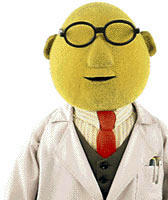
The Area of Interaction
"In actual fact the truth is altogether more complex and correspondingly more interesting" (p. 5)
"The Galileo affair by no means indicates that there is an inevitable incompatibility between science and religion. One unwise incident does not imply a continuing conflict"
"Theology discovered that the dignity of humankind depended neither upon its inhabiting the center of the universe nor upon Homo sapiens being a separately and instantaneously created species." (p. 8)
"The doctrine of creation implies that:
- the word is orderly, since God is rational;
- no prior constraints are imposed on the Creator's choice of creation's pattern, so that one has to look (observe and experiment) to see what the divine will has selected;
- because creation is not itself sacred, it can be investigated with impiety;
- because the world is God's creation, it is a worthy object of study." (p. 9)
"Scientists are driven by the desire to understand and not simply by the ability to correlate or predict accurately." (p. 13)
"The occasional occurrence of radical revision in scientific theory-making means that one cannot claim the achievement of science to be that of the attainment of absolute truth." (p. 16)
The Scientific Picture of the World
"This decision corresponds to the realist strategy of seeking as close and alignment as possible between epistemology and ontology. In a phrase of Polkinghorn's, "Epistemology models ontology" ..." (p. 31)
"In the minds of contemporary scientists, the guarantee of reality is not objectivity but intelligibility ..." (p. 33)
"Both chance and necessity are indispensable partner in the fruitful history of the universe. A purely contingent word would be too haphazard to be fertile; a purely necessitarian world would be too rigid to be fertile." (p. 39)
"On one hand, in a deterministic universe, total knowledge of the present would enable total prediction of the future and total retrodiction of the past (as Laplace pointed out two centuries ago), so that in that sense it would be quite natural to accord past, present and future equal ontological status in this case. On the other hand, an open universe with a variety of causal principles at work, including the choices of free agents, is naturally conceived of as a world of true becoming in which the reality of the moving present would be expected to be accommodated, rather than a world of static atemporality" (p. 48)



1 comment:
Scooter said in a previous thread:
Okay, well, the new open thread for March 15th isn't up yet. So I'll leave my comment/questions here.
1) Does Polkinghorne believe in a 15 billion year old world or a 10 000 year old world? (Referring to last sentence in the 'Independence' section on pg. 21)
2) Is he referring to himself when he says things like, "Polkinghorne has redescribed this intellectual meeting ground....?"
I find this annoying.
March 16, 2007 2:27 PM
In reply I would offer that P. makes it pretty clear that he thinks that current science has a reliable view of the Universe and that if they say it is a gazilliion years old he will agree.
Yeah, I have to admit that the affectation of referring to oneself in the third person is usually reserved for royalty. I know it bugs the snot out of Beaker.
Post a Comment